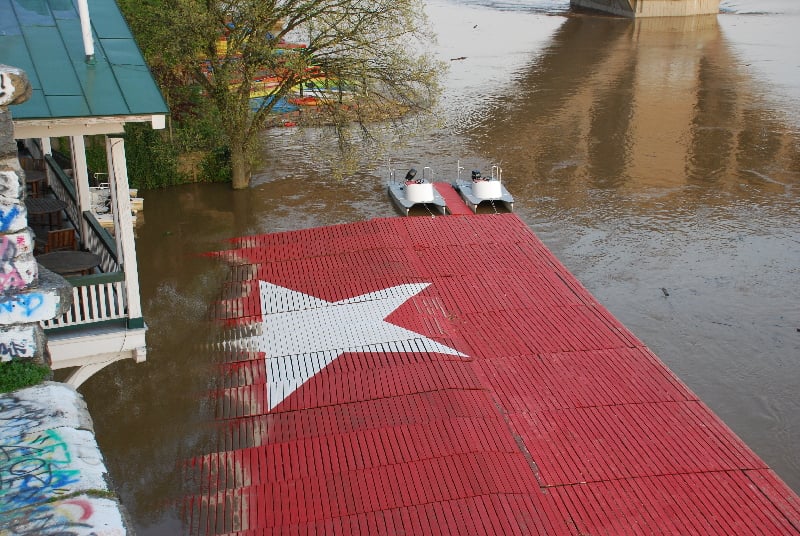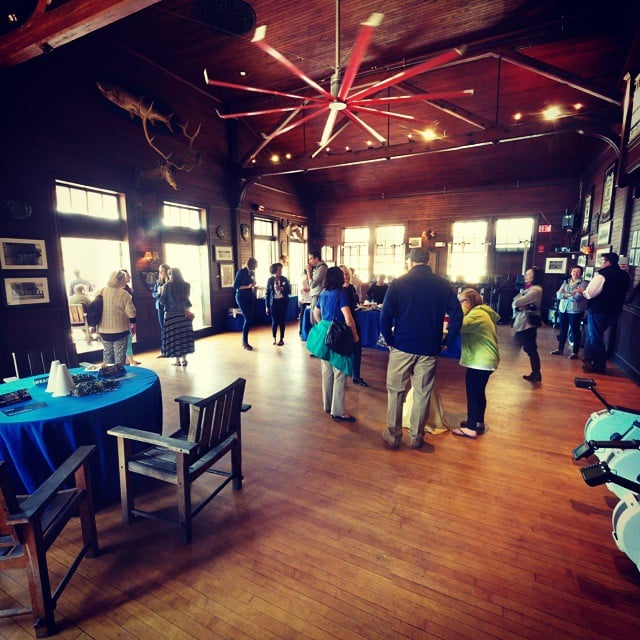History of the Potomac Boat Club on the Potomac River in Washington, DC
| filed under: Potomac Boat Club, Potomac Boat, PBCVia the Potomac Boat Club's official history of the club's about page:
Potomac Boat Club was established in 1869. A club history published in 1929 fixes the date as July 6, 1869, and describes the initial meeting site as “an old hostelry in Georgetown.”
John Hadley Doyle, president of Potomac Boat Club from 1898 to 1908, reported that “a convivial group of gentlemen, among whom were Col. Frank Jones, D.B. McLeod, Charley Wheatley, George Fox, ‘Pop’ Truax, Samuel Wheeler, Edward Derrick, Caton Gadsby, Col. B.F. Blacklock and others, met in the drinking parlors of the old Morgan House and discussed the question of forming a boat club. The idea took quickly and soon nearly all of the scions of old Georgetown were enrolled on the list of membership, thus starting an organization known as the Potomacs that has run all these years – has seen the ups and downs of the game, has seen other clubs like mushrooms grow up and die, and has seen its colors carried to the fore in many of the great races of the times, when pitted against the best of Americans, especially in the days when Saratoga Lake was the fighting place for all big aquatic contests.”
While 1869 is the date given for the establishment of Potomac Boat Club, an item in The Washington Star dated June 13, 1859 reports: “A number of our citizens have formed themselves into a club under the title of the Potomac Barge Club, for the purpose of aquatic exercise and pleasure” with a new boathouse at the Tenth Street Canal Bridge. Little is known about this precursor organization. Other rowing clubs were established in Washington in the years following the Civil War: Anacostia Boat Club, on the Anacostia River; the Analostan Boat Club, established 1866, with a boathouse near the present site of Thompson Boat Center, and the Columbia Boat Club or Columbia Athletic Club, located on Analostan Island, now known as Roosevelt Island. The first rowing competition won by Potomac was a gig race against an Analostan Boat Club crew on November 3, 1869.
The first PBC boathouse stood at the foot of Congress Street — what is now 31st Street in Georgetown. It was a “rough building erected by the members” and was replaced by a larger structure on the same site. This building was rebuilt in 1875. According to a news account, the building was “a model of its kind in America, and even today is the envy of many of the rich clubs of the North.” The building housed “seventy-three private crafts, thirty-three of which are the beautiful canoes that are now so popular on the river.” The current PBC boathouse, located at 3530 Water Street NW, was built in 1908.
While many competitions were held on the Potomac in the second half of the 19th century, none generated more publicity and excitement than the race held May 19, 1880, between Ned Hanlan of Canada, the famed “Boy in Blue” and Charles Courtney of New York. Hanlan was sponsored by Analostan Boat Club, Courtney by PBC. The prize was the enormous sum of $5000. The race generated days of newspaper coverage leading up to the event. Bleachers were set up to accommodate thousands of spectators; the Aqueduct Bridge was surveyed to make sure the structure could support the anticipated crowd of observers. Schools were dismissed for the day; hotels were crowded with visitors and their lobbies filled with gamblers betting on the outcome. The race proved to be a disappointment and was one of the factors leading to public disillusionment with the professional rowers who dominated the sport in the late 19th century. Shortly after the start of the race, Courtney stopped rowing, and Hanlan went on to finish the course and win. While Hanlan landed at Analostan to the cheers of his supporters, Courtney arrived to stony silence at the PBC dock. Although he blamed heat stroke, Courtney was widely believed to have thrown the race. He and his boat were out of the PBC boathouse and on their way back to New York by 6 A.M. the following morning. Despite the disgrace, PBC later hired Courtney as a coach 1881-85 and crews under his direction enjoyed great success.
Potomac Boat Club has long offered its members an active social calendar as well as opportunities in sports other than rowing. A 1932 article reported that club activities included boxing, wrestling, basketball, horseshoe pitching, swimming and canoe racing. Newspaper accounts over the years report many dances, lectures, oyster roasts and other events. As John Hadley Doyle put it, “Oh, it was a swell place….the club made much of its social whirl and hence the place became the home of the cotillionist, as much so as to those who went into the rowing game. Added to the glamour of the boat house, the club also possessed an up-river landing…where barge parties and picnics were almost daily happenings during the season.” The social whirl continues to this day, although horseshoes and hard-core cotillionists are fewer in number.
Throughout its history and up to the present time, Potomac Boat Club members have competed vigorously and with considerable distinction. Potomac Boat Club was part of the development of high school rowing in the Washington area under the leadership of Charlie Butt (W-L HS Crew History here), and since 1981, PBC has hosted the Charlie Butt Scullers’ Head of the Potomac Regatta. In national and international competition, and in the dramatic growth of masters rowing, Potomac athletes continue to stand out in all aspects of the sport.



